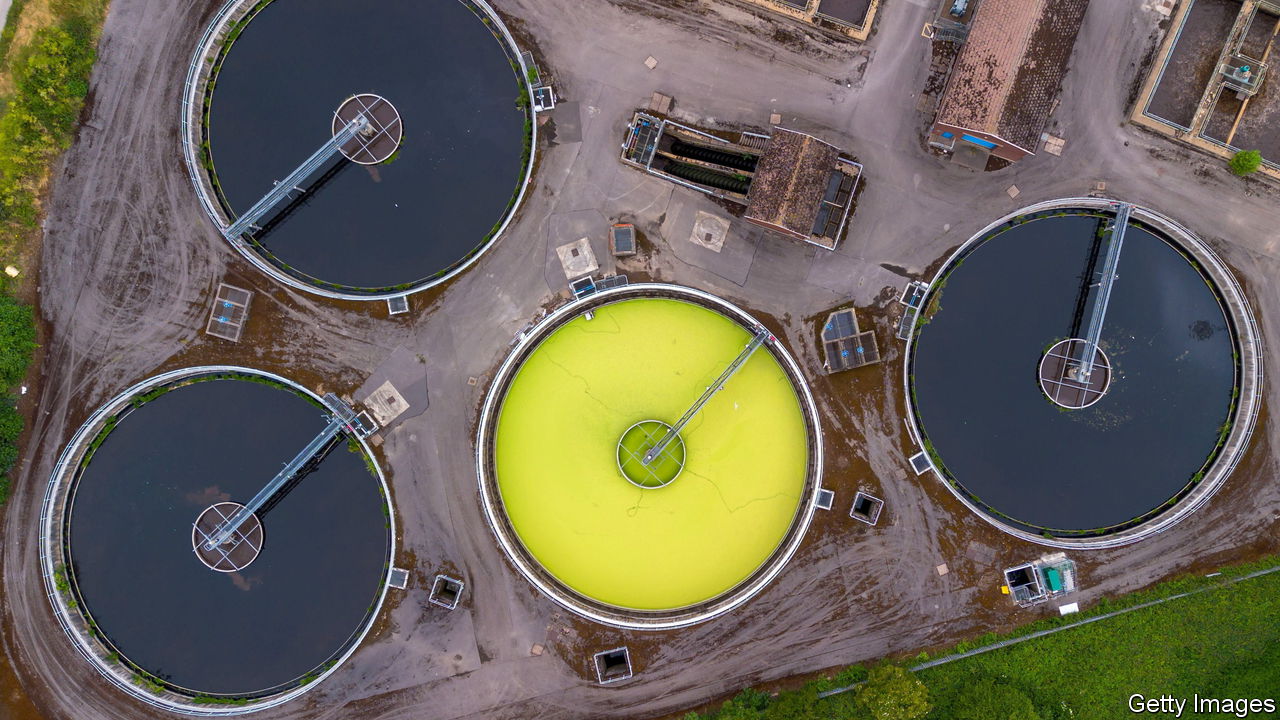Blame financial blunders and timid regulation, not privatisation
The answer is that 1. They’re privatised but 2. They’re effectively monopolies. The argument for privatisation is basically that private companies need to innovate and keep prices low in order to compete in the free market against rival companies providing the same service/product — in practice though unlike something like electricity (which I also think should be renationalised) you don’t actually get to choose which company supplies water to your home, it’s just based on where you live and there’s only one option, so soon each catchment the water companies don’t actually have any competition.
They don’t need to innovate because the consumers don’t have the ability to switch to another supplier (unless they want to be moving house constantly), equally they have no incentive to keep their prices low.
So they’re effectively the worst of both worlds. If they’re going to be private sector you might as well do it properly by creating actually competition, otherwise just make them public sector.
The argument for privatisation is basically that private companies need to innovate and keep prices low in order to compete in the free market against rival companies providing the same service/product
Price competition was explicitly never the argument for utility privatisation in the UK in the 1980s, because they are natural monopolies. That’s why the Thatcher government introduced RPI-X price regulation for the privatised utilities - utilities were allowed to increase their prices by RPI inflation minus an amount (X) set by government. I think in water, it’s done as RPI-X+K, where the K is meant to allow some price growth for ongoing investment.
The X in RPI-X was meant to be what forced innovation, because the utility companies’ revenues would grow slower than inflation and so the only way to maintain their profits is to innovate. The argument for privatisation was that business people in private enterprises tend to be better at innovating than civil servants, provided you give them the right incentives.
Off the top of my head, a stronger form of regulation would be more demanding in how we assess whether the K amount is being used for investment in the way we need. We could also introduce restrictions on shareholder dividends or executive bonuses for water companies that don’t meet service quality or environmental standards, and give the regulator more powers and resources to make use of these tools.
In other words, we need to give water companies the right financial incentives to do the things we need them to do - turns out that private greed is a powerful motivator when you point it in the right direction.
Isn’t that too complicated for no reason? Just keep them under public control. No need to incentivise anyone, no need to share dividends to anyone.
It’s almost like the business regulation wouldn’t need to be so strong if it was never privatized in the first place.
Bearing in mind that The Economist usually cheers on deregulation, it’s comical that they pin the blame on OFWAT’s ineffectiveness.
deleted by creator
Now it is time to spend more. The costs will fall on consumers: one way or another, if Britons want cleaner water they will have to pay for it. Private investors will demand a higher return on any funds they put in, especially if the water companies’ scope to borrow is limited.
But talk of nationalisation is a distraction—and a poor use of scarce public funds. Whether water companies are owned by the state or remain in private hands, a fierce watchdog will be needed to keep the industry in line. Indeed, elected politicians would probably be even more reluctant than arms-length regulators to spend taxpayers’ money or raise bills to pay for necessary investment. Those regulators will, at least, now have the cautionary tale of Ofwat’s failings to guide them.
Playing devils advocate, a heavy handed regulator would be what nationalisation means in practice. The private sector and privatisation has meant enormous taxpayer recovery, so we should be entitled to either own or regulate hard. And actually the incentive for having private ownership with weak regulation is the only reason it was privatised, so the shareholder who has zero say in how the company is run in the same manner as the taxpayer, is very happy to invest knowing full well that they get dividends regardless.
I think the argument of the article is:
-
Privatisation + weak regulation = underinvestment, as private owners don’t have the incentive to spend the money to invest for the long-term.
-
Nationalisation = underinvestment, as putting politicians in charge means they’ll be too sensitive to the impact on voters of charging them (either via taxes or water bills) for investment in the infrastructure.
-
Privatisation + strong regulation = needed investment, as strong regulators can be more demanding of water companies but can do so at arm’s length from politicians.
It’s a double edged sword. A private company with a strong regulator might have more appetite for investment. However, a private company might also do their utmost to work around any rules, investing as little as possible to make the most profits.
Which is why the ‘strong’ bit of ‘strong regulation’ is key. Not just write some hands-off rules and call it job done, but ongoing supervision by the regulator.
its probably inevitable now that much stronger oversight will be brought in. In the last few days Labour have been saying thats what the plan is wether its now or in the next government. It makes sense to make the failed ones like Thames Water pay to clean up the mess, instead of letting them off the hook by nationalising. I just think its hard in principle to justify making money off an essential for life service. Its almost the same as air or the sky being private owned because the private company can clean it up.
I just think its hard in principle to justify making money off an essential for life service.
There are many good arguments for nationalising an industry - particularly a natural monopoly - but I always find ‘we need it to live’ to be a weak argument. We need food to live, we need shelter, we need clothes - would you nationalise the supermarkets, the housing stock, the fashion industry? The government’s role in these things should be to make sure that the things we need to live are made available to people, but I’m relaxed about whether the provider makes a profit for their shareholder or claims a subsidy from the taxpayer - either way, we pay for it.
I’d compare it to other utilities like electricity or railways where not only has the market entirely failed to improve the service but actually costs far more after disastrous market adventures. Any regulator would be attacked for being political at some level by some people.
The difference with electricity is that I can change provider without having to move house
There is no competition between water or train companies
sort of, its surely not that simple. Its the same electrons whoever you buy them off, only the different types of generation and transmission depending where you live. Whats annoying about electrons is if we make them via wind or nuclear or solar its all priced in gas, so the cost of say a solar farm benefits the operator hugely and the customer is paying alot more for what is basically the sun which is still free to access.
Trains are different. There isn’t market competition between the Train Operating Companies (TOCs) so they created a system of pre-market competition when they privatised them - the competition takes place when TOCs bid against each other in the auction for the local franchises every five (I think?) years.
The bit of the rail network over which it’s much harder to introduce competition is the actual railways themselves - which is partly why the railways were renationalised by Labour in 2002.
Water companies don’t/can’t compete against each other though - that’s the reason even the Thatcher government thought it was necessary to give us a system of price cap regulation in order for them to operate privately. But as I’ve said above, the problem with water isn’t monopolistic pricing, it’s underinvestment, which wouldn’t obviously be solved under public ownership either.
-








